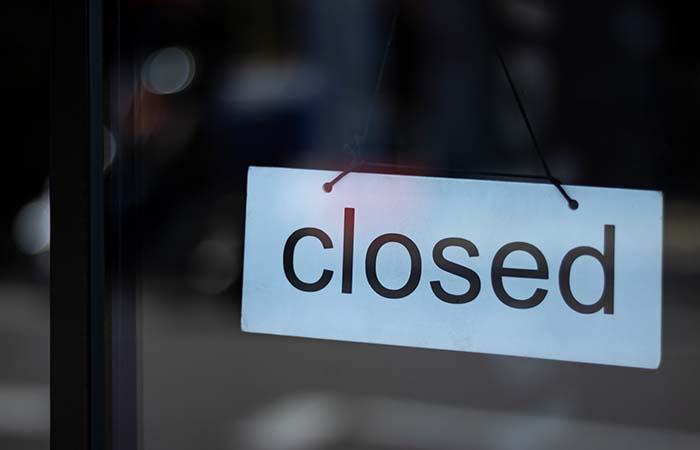Bookmark
Record learning outcomes
News
Stay up to date with all the news, learning and insight in the world of pharmacy.Follow this topic
PDA: Multiples 15 times more likely to shut their doors than independents
In News
Stay up to date with all the news, learning and insight in the world of pharmacy.Follow this topic
Bookmark
Record learning outcomes
Data obtained from NHS bodies in Scotland shows that large pharmacy multiples are significantly more likely to shut temporarily than independents, the Pharmacists’ Defence Association has claimed.
The PDA filed freedom of information requests to Scottish health boards to obtain closure reports covering the period from January 1 to May 31 this year.
In a statement yesterday, it claimed there were 1,625 closures reported by Company Chemists’ Association members during this period, compared with 114 reported by independent pharmacies and smaller chains.
“That means if a patient’s local pharmacy was operated by a CCA member it was more than 15 times as likely to be closed to patients for at least part of the day than if their local pharmacy owner was a non-CCA member,” said the PDA.
It acknowledged that some closures may be unavoidable due to unforeseen circumstances such as last-minute sickness, and that independents are often owned and run by a pharmacist who will “step in as the responsible pharmacist when needed”.
However, it queried the size of the discrepancy in reported closure rates between independents and multiples, pointing out that CCA members make up 47 per cent of Scottish pharmacies with non-CCA members accounting for the remaining 53 per cent.
Along with other trade bodies representing pharmacy employers, the CCA has argued that there is a sector-wide personnel shortage making it difficult to recruit full-time and temporary positions, citing this as a key factor in rising closure rates.
The PDA has disputed these claims, pointing to year-on-year increases in the number of pharmacists on the GPhC register as well as instances in which some chain pharmacies have allegedly chosen to close on a certain day rather than pay the rates requested by locum workers.
Last week, the PDA called on Scottish health secretary Humza Yousaf to impose financial sanctions on pharmacy businesses that repeatedly fail to meet their contractual obligations with the NHS.
This week it posed a similar challenge to Mr Yousaf’s counterparts in Wales, Northern Ireland and England.
Concerns around closures in the Midlothian area were raised on Monday by Conservative MSP Craig Hoy, who said failure to open during contractual hours “undermines patient care” and represents a “misuse of public money”.
“The current situation is unsustainable and very dangerous for patients who collect life-saving medicine from pharmacies on a regular basis,” said Mr Hoy.
In response, NHS Lothian pharmacy director Scott Garden said: “We are aware of the current situation of ongoing short notice pharmacy closures in Lothian. We understand this to also be an issue across Scotland, with pharmacist and pharmacy staff availability the most common reason for an unplanned closure, and there is ongoing dialogue with Scottish Government.
“NHS Lothian regularly engages with pharmacy contractors, to remind them of their obligations to deliver services within their contracted hours.
“There have been numerous communications to remind contractors of the steps that must be followed when an unplanned closure occurs.
“NHS Lothian continues to meet with the area and regional managers of multiple pharmacy groups, and we are currently collaborating on area-wide plans to manage and minimise the impact of closures on local communities.”
A CCA spokesperson said: “Our members have been serving Scottish communities and patients without issue for decades. Recent pressures, however, are unprecedented. Workforce challenges are affecting all parts of healthcare across the UK – and community pharmacy is no different. Pharmacists remain on the Home Office’s shortage occupation list for this reason. The average locum rate rose by 124% in Scotland in 2021 compared to the year before and the trend seems to have continued since. This clearly demonstrates that demand for pharmacists in Scotland is outstripping supply.
"At the February 2022 APPG Pharmacy session, the PDA heard first-hand about the extraordinary lengths and different actions that businesses of all sizes are taking to maintain patient access. The current situation is unsustainable.
"Our members have been affected by unplanned sickness, including two Covid surges in January and April 2022, and holiday periods just like other parts of the sector. These closures may reflect very small parts of the opening day, as companies try tirelessly to plug gaps at short notice.
"

